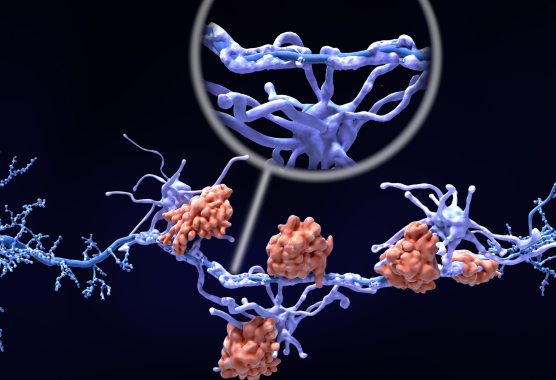Yan Wang, Ph.D., is an Assistant Professor of Neurology at the University of California, Davis. Her research focuses on the biology of glial cells—particularly oligodendrocytes—and their roles in CNS development, injury, and repair. Her lab integrates genetic mouse models, molecular and cellular tools, and translational approaches to study mechanisms of demyelination and remyelination. She also leads efforts to develop therapeutic strategies for Canavan disease by targeting the metabolism and transport of N-acetylaspartate (NAA), the toxic metabolite that accumulates in this disorder. Wang’s work bridges developmental neurobiology and neurotherapeutics with the goal of improving outcomes for individuals with white matter diseases.
Wang Lab

-
Our Research Goals
Our laboratory is dedicated to uncovering the cellular and molecular mechanisms that govern oligodendrocyte development, CNS myelination, and white matter repair.
-
Current Projects
Mechanisms of Oligodendrocyte Differentiation and Myelin Repair in Multiple Sclerosis
Our lab investigates the intrinsic molecular mechanisms that regulate oligodendrocyte development and the regenerative processes required for myelin repair. We focus on identifying stage-specific regulators that influence oligodendrocyte progenitor cell (OPC) differentiation and remyelination in demyelinating diseases such as multiple sclerosis (MS). By integrating genetic, molecular, and pharmacological approaches in both developmental and injury models, we aim to uncover novel therapeutic targets that can enhance endogenous repair mechanisms and restore white matter integrity in the diseased central nervous system.
Mechanisms and Treatment of Canavan Disease
We are studying the pathogenesis of Canavan disease, a leukodystrophy caused by loss of ASPA function and accumulation of N-acetylaspartate (NAA). Our research focuses on disrupting NAA synthesis or transport using antisense oligonucleotides and gene editing. We aim to correct the underlying metabolic imbalance and reverse the neurodegenerative features of the disease in mouse models.
Development of Gene and RNA Therapies for Leukodystrophies
Our lab is advancing therapeutic platforms, including CRISPR/Cas9 and LNA-based antisense oligonucleotides, to correct genetic and metabolic defects in white matter disorders. These efforts are informed by in vivo delivery systems, biochemical analysis, and behavioral assessments in preclinical models.
Clinical Trials
Learn about the different clinical trials we offer.
Giving
Join us to advance neurological health for all.
Fellowship Programs and Training Opportunities
Learn, grow and collaborate with our renowned researchers.

